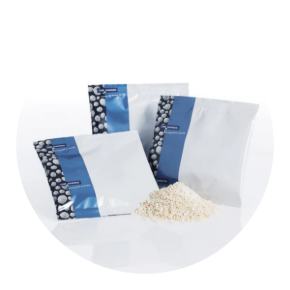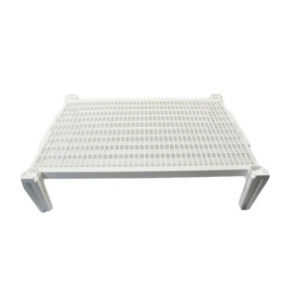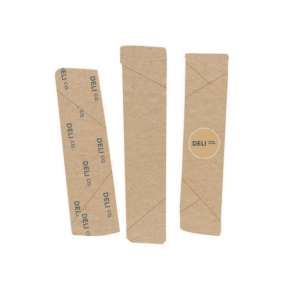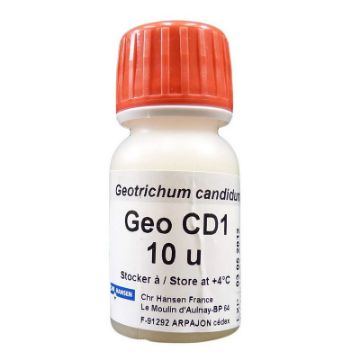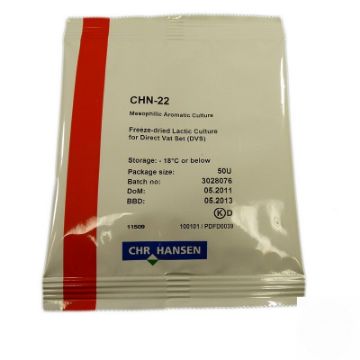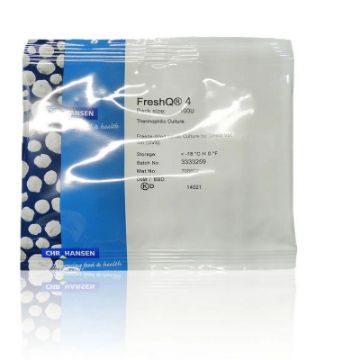Products tagged with 'Chr Hansen'
GEO CD 1 Swing Liquid 10 u (Box of 6 pouches)
A selected single strain ripening culture with origin in traditional French cheese making.
The SWING® GEO cultures contributes to the flavor, texture, and appearance of cheese.
The culture is available as a conidia suspension.
The culture may be used in production of many types of cheeses including white mold surface (e.g.Camembert type), smeared and mixed rind, soft and semi-hard, and blue mold cheeses.
Vega Mild Frozen 500 u
Thermophilic lactic acid culture.
This culture has been produced without the use of dairy derived ingredients in any part of the production steps.
The culture is manufactured in an environment where dairy ingredients are handled.
The culture is used in the production of yoghurt products such as drinking or stirred, made from dairy alternatives.
CHN-11 Freeze-dried 500 u
Mesophilic aromatic culture, type LD.
The culture produces flavor and CO2 .
This range provides cultures with fast acidification properties at a low inoculation rate.
The culture is primarily used in the manufacturing of Continental semi-hard cheese varieties with eyes, e.g. Gouda, Edam, Leerdam and Samsoe.
CHN-22 Freeze-dried 50 u
Mesophilic aromatic culture, type LD.
The culture produces flavor and CO2.
This range provides cultures with fast acidification properties at a low inoculation rate.
The culture is primarily used in the manufacturing of Continental semi-hard cheese varieties with eyes, e.g. Gouda, Edam, Leerdam and Havarti.
FreshQ 4 Freeze-dried 100 u
The FreshQ® cultures are combinations of traditional lactic acid bacteria that deliver inhibition of unwanted yeast and moulds in fermented dairy products.
The effect is obtained through active participation in the natural fermentation.
The cultures are added in combination with the normal starter culture in the production of fermented dairy products.
The cultures are developed for application in e.g. Fresh cheese, yoghurt, sour cream.
Vega Vibe Frozen 500 u
This culture has been produced without the use of dairy derived ingredients in any part of the production steps.
The culture is manufactured in an environment where dairy ingredients are handled.
The culture is used in the production of drinking, stirred or set fermented products made from dairy alternatives.
The dairy alternative base should have a pH ?
7 to ensure sufficient activity of the culture and it should contain enough fermentable sugar to reach pH 4.5 in the final product.
Fermentation temperature should be 38°C – 43 °C.
The final product should be stored at 8 °C.
The maximum shelf life of the final product is 60 days at 4 °C or 28 days at 8 °C.

